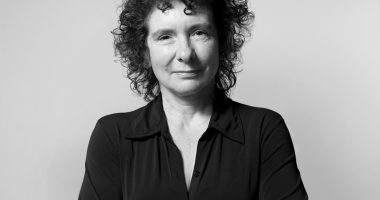
Picnic at Sherman’s Point. Camden, EUA, 1900 | Camden Public Library | No known copyright restrictions
We can understand human needs as that without which we experience profound harm. They are the indispensable foundations for aspiring to a good life and achieving all that we are capable of doing and being. Therefore, if we want to move towards a socially just and ecologically sustainable society, we must rethink what really matters.
Having carried the flame a single instant
reason gives us hope.
José Ángel Valente
The good life
We are sure to all have heard the expression about placing life at the centre of things or focusing on what really matters. We have also become used to defending a life worth living or a decent life. I remember that some of these expressions came to the fore during the 15M demonstrations, as well as the movement for housing and support for people in the midst or on the point of eviction, and they featured in the discourse of environmentalists and ecofeminists. But what underlying assumption are we making when we use all these expressions? Something simple and on which there seems to be an overwhelming consensus – that we human beings are able to keep ourselves alive, but that not all lives are ideal. That there are a number of conditions without which a human life can become unbearable; that if we lack a number of essential elements, we cannot achieve all that we are capable of doing and being, and that this undermines our dignity and autonomy.
The question we cannot fail to ask is that of how we should live. This question of what “the good life” means is the fountainhead of ethics, and persists, in one way or another, in all the different societies and cultures. What is more, the search for the good life is rooted in our interdependence and our eco-dependence, both of which underpin the kind of being we are. Therefore, to think about how we should live if we want a life worth living, it is essential to look around us. I suggest that any reflection we make regarding the good life should be based on these two assumptions: that to live well, we humans depend on others with whom we form communities (interdependence); and we also depend on the health of the ecosystems in which we live, with all the work that many other living beings contribute to this (eco-dependence).
All you need is…
When we start to think about what it is that really matters, one of the possible approaches is to look at our needs. It is not the only one, of course – some prefer to speak of capabilities, of goods or rights to define those requirements without which a human life is far from being good or worthwhile. In our present time, defined by the global eco-social crisis, and also with an eye on our future, defined by our ability or inability to meet the challenge it poses, I think it matters little whether we use of one term or the other. Because of my intellectual background, because of my closeness to a materialist tradition with which I feel comfortable, I use the notion of needs, but without any fanaticism. Needs help me to think about everything that we humans share on a universal level, regardless of time and place. For me, needs refer to that without which we experience profound harm, something that takes us away from the good life (in the specific form that each of us understands it). Although it is not an easy distinction, it seems to me useful to reserve the notion of needs for this limited number of fundamental elements, while also assuming that they are far from including all that we might desire. Needs would not be a homogenising maximum, nor a recipe for a life overflowing with plenitude, but rather the clay that fills the holes in the vessel and holds it shape so that the water does not leak out.
Thus understood, the half-score of needs that I suggest below address both the metabolic aspects that we share with other mammals (previously called basic or physiological needs) and the psychosocial aspects related to the fact that we are social and complex animals. A possible list of human needs, similar and indebted to those proposed by Simone Weil, Len Doyal and Ian Gough, Manfred Max-Neef and Joaquim Sempere,[1] is as follows:
- Food and drinking water
- Health and physical security
- Love and care
- Acknowledgement
- Shared autonomy
- Equity
- Education
- Participation
- Autotelic activities
- Work
Far from hierarchical or pyramidal visions of needs, if had to give a reasonable analogy, for me it would be a mixing desk with its various possible inputs and outputs, modulations and variations. Some needs exert a stronger pull on us at certain times of our lives (love and care), become louder than the rest (health and physical security), or exist as a constant baseline (food and drinking water, acknowledgement). However, it is important to bear in mind that each of these needs can be met in very different ways depending on the historical moment and culture of each place. These culturally determined means of meeting needs are what we call satisfiers. Although here is not the place to elaborate, I would argue that the matter of satisfiers is one of the most fertile grounds for transformative reflection and action if we are to address the eco-social crisis.
Risky joy for a liveable future
If we want a habitable future, and aspire to lives worth living, lives that may be good, there are many things that we must change. As the ecofeminist thinker Yayo Herrero says, we are on the verge of an anthropological shipwreck, because “the way in which people relate to each other and to nature in our Western societies is in flagrant contradiction with the organisation of living systems and of society itself.”[2] I believe that ethical-political reflection (or “polyethical” reflection, as the philosopher Francisco Fernández Buey out it)[3] will be an indispensable ingredient for these processes of transformation towards socially just and ecologically sustainable societies. The kind of changes we need very much involve rethinking the way we live on the only planet where we are able to do so.
If we had to give a succinct response to the question of “How to inhabit the Earth” that Bruno Latour asked in his book of conversations with Nicholas Truong,[4] the answer could well be “with humility.” For Latour, becoming terrestrial again has to do with our empathy with the Earth, but not as something alien to ourselves. To live on the planet, he wrote, “we need to know what matters to us”. We need to discover to whom and to what we are linked – what are the beings and things that allow us to subsist? What do we depend on and who depends on us? This ties in perfectly with the ecofeminist proposal of recognising ourselves in the idea of vulnerability, of reconciling ourselves with our multiple dependencies. For me, being terrestrial also means asking ourselves: whose nails do you cut? Whose nappies do you change? Your daughters’, your father’s, your grandmother’s? And who feeds you? Who sows crops, and where? Who listens to you? Who cleans your office toilet? What animal greets you every day as if it hadn’t seen you for years? Who sews your clothes? Who waits for you?
Trying to meet human needs without overreaching the ecological limits seems to me to be the challenge of our time. Of course it is a great challenge, but it is a vital one because our chances of living good lives (and that our daughters can also aspire to the same) depends upon it. That is why Donna Haraway’s proposal of observing a continuous practice of risky joy as a form of action-thinking-care seems to me to be tremendously accurate:
If we do not take the risk of experiencing a kind of joy among ourselves, we are already dead, and in that case, it is better to forget the whole thing. Committing ourselves to intervene in unfinished worlds is the task we carry out in the face of the threat of depression and defeat, of cynicism, of strange fascist futurisms, of technological fixes, of the sixth great extinction, which we must urgently tackle.[5]
As there seems to be a growing temptation to look to other planets in light of the eco-social crisis, I prefer to make it clear that this reflection on human needs, which attempts to be terrestrial in Latour’s sense, is also decidedly earthling. This is the planet we have and the one we must learn to inhabit better. This is where we are needy beings with the possibility of having lives worth living. Let us take the risk.
[1] Simone Weil, The Need for Roots¸ Routledge, 1995; Doyal and Gough, A Theory of Human Need, The Guilford Press, 1991; Max-Neef, Human Scale Development, Zed Books, 1991; Sempere, L’explosió de les necessitats, Barcelona, Edicions 62, 1992.
[2] Yayo Herrero, Toma de tierra, Caniche Editorial, 2023, p. 22.
[3] Francisco Fernández Buey, Ética y filosofía política, Barcelona, Bellaterra, 2000, p. 21.
[4] Bruno Latour, Habitar la tierra, Barcelona, Arcadia, 2023.
[5] Donna Haraway and Marta Segarra, El mundo que necesitamos, Barcelona, Icaria, 2020, p. 53.





Leave a comment